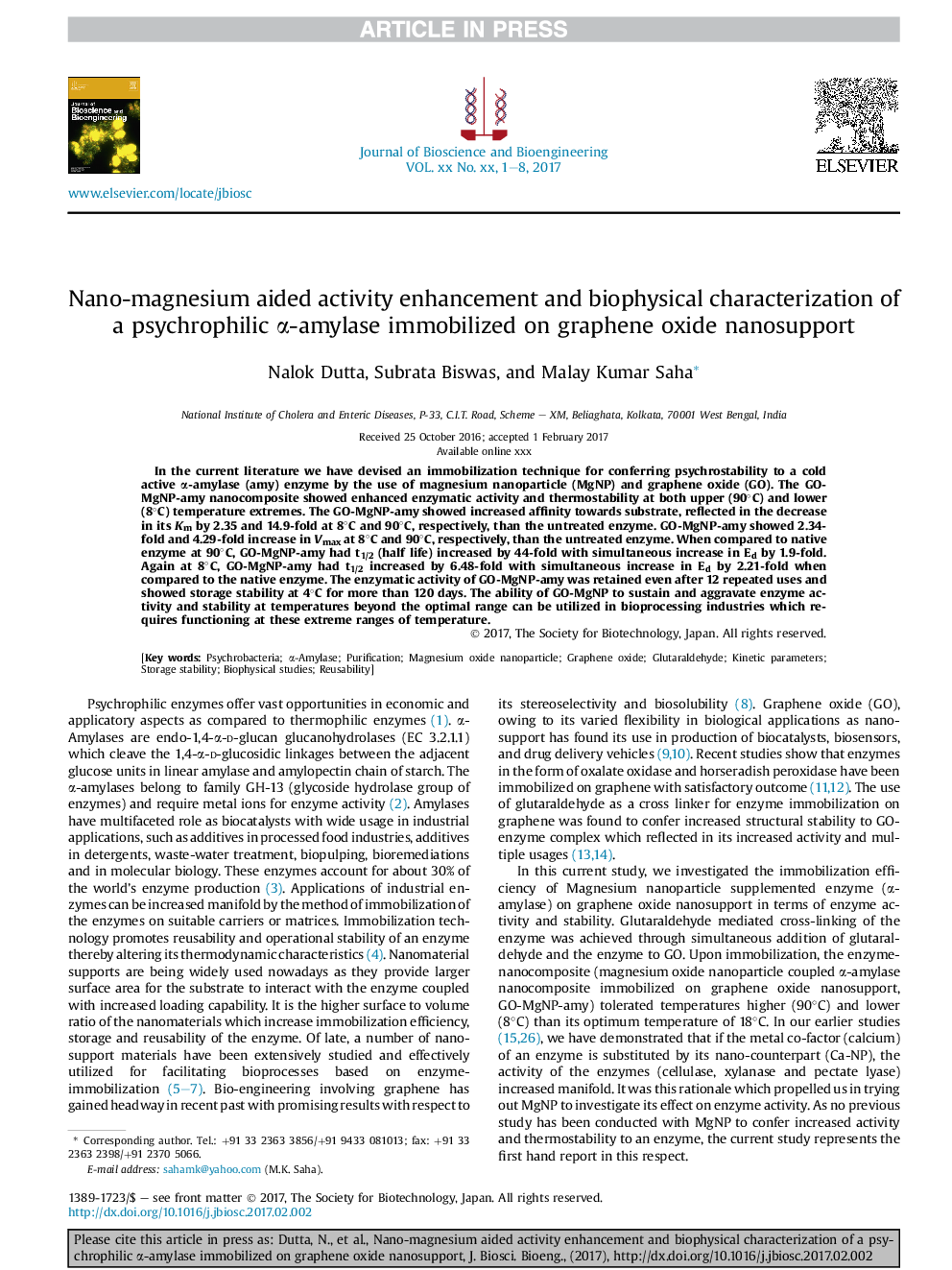| Article ID | Journal | Published Year | Pages | File Type |
|---|---|---|---|---|
| 4753302 | Journal of Bioscience and Bioengineering | 2017 | 8 Pages |
Abstract
In the current literature we have devised an immobilization technique for conferring psychrostability to a cold active α-amylase (amy) enzyme by the use of magnesium nanoparticle (MgNP) and graphene oxide (GO). The GO-MgNP-amy nanocomposite showed enhanced enzymatic activity and thermostability at both upper (90°C) and lower (8°C) temperature extremes. The GO-MgNP-amy showed increased affinity towards substrate, reflected in the decrease in its Km by 2.35 and 14.9-fold at 8°C and 90°C, respectively, than the untreated enzyme. GO-MgNP-amy showed 2.34-fold and 4.29-fold increase in Vmax at 8°C and 90°C, respectively, than the untreated enzyme. When compared to native enzyme at 90°C, GO-MgNP-amy had t1/2 (half life) increased by 44-fold with simultaneous increase in Ed by 1.9-fold. Again at 8°C, GO-MgNP-amy had t1/2 increased by 6.48-fold with simultaneous increase in Ed by 2.21-fold when compared to the native enzyme. The enzymatic activity of GO-MgNP-amy was retained even after 12 repeated uses and showed storage stability at 4°C for more than 120 days. The ability of GO-MgNP to sustain and aggravate enzyme activity and stability at temperatures beyond the optimal range can be utilized in bioprocessing industries which requires functioning at these extreme ranges of temperature.
Keywords
Related Topics
Physical Sciences and Engineering
Chemical Engineering
Bioengineering
Authors
Nalok Dutta, Subrata Biswas, Malay Kumar Saha,
